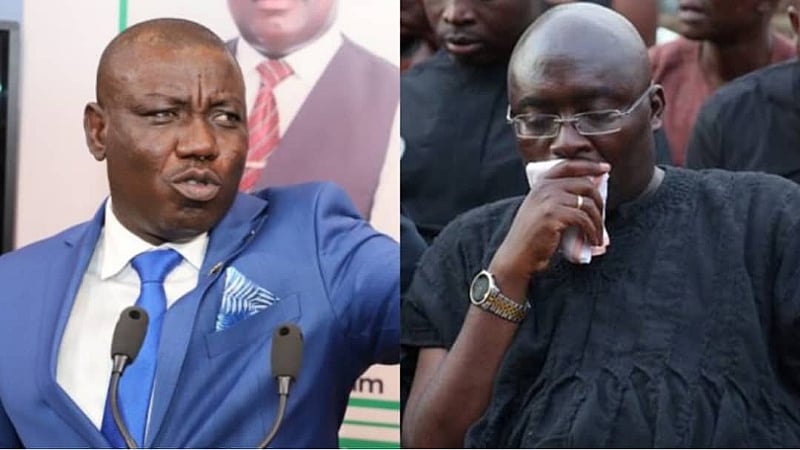The recent remarks by Isaac Adongo, the Member of Parliament for Bolgatanga Central, have ignited a political firestorm in Ghana. Speaking at a campaign rally for the National Democratic Congress (NDC), Adongo accused Vice President Dr. Mahamudu Bawumia of consuming pork, a food deemed controversial within the Muslim community. This statement was not merely a casual claim but was framed within a broader attempt to undermine Bawumia’s credibility as a Muslim leader, particularly in light of his role as the New Patriotic Party (NPP) flagbearer. Adongo’s declarations have sparked discussions about the intersection of religion and politics, and how such issues are leveraged in Ghana’s vibrant political landscape.
Furthermore, Adongo went beyond merely accusing Bawumia of eating pork; he claimed that the Vice President has also engaged in other “anti-Muslim acts,” most notably through his consumption of alcohol, specifically whiskey. By drawing attention to Bawumia’s dietary choices, Adongo hopes to resonate with Ghana’s Muslim population, particularly those from the Zongo communities, where such dietary laws are taken seriously. This tactic is indicative of a larger strategy within Ghanaian politics, where personal attacks and the questioning of one’s integrity can significantly impact electoral prospects.
Adongo’s rhetoric was particularly colorful and theatrical, as he invoked the concept of a “Dog Eaters Association,” suggesting that any further transgressions by Bawumia—such as eating dog meat—would lead to palpable repercussions from the community. This hyperbolic framing not only served to entertain the audience but also aimed to solidify a collective identity around the perceived threats from the opposing party. By employing humor and dramatic imagery, Adongo enhanced his message while mobilizing his supporters against a common political adversary, painting Bawumia’s actions as a betrayal of both his faith and his constituency.
The political implications of such comments are noteworthy, as they reflect the increasingly polarized nature of Ghanaian political discourse, especially in the run-up to elections. Adongo’s statements can be seen as part of a broader strategy by the NDC to undermine the NPP’s religious and moral standing in the eyes of voters. As the nation approaches a highly competitive election season, these kinds of attacks will likely become more frequent as political parties seek to exploit any weaknesses in their opponents’ images, particularly concerning issues of integrity and adherence to religious values.
Moreover, the manner in which Adongo’s remarks blend humor with political rhetoric showcases an evolving dynamic in Ghanaian political campaigns. The use of satire and ridicule might attract attention and rally supporters, but it can also lead to unintended consequences, as political discourse can quickly spiral into personal attacks and divisiveness. The critical challenge for both the NDC and NPP will be to balance engaging in effective political campaigning while maintaining respect for cultural and religious sentiments, which remain deeply intertwined with Ghanaian identity.
In summary, the remarks by Isaac Adongo are indicative of a broader strategy employed by the NDC to undermine Dr. Bawumia’s credibility, especially within Ghana’s Muslim communities. By framing his comments within a humorous yet provocative context, Adongo has not only raised questions about Bawumia’s personal conduct but has also engaged in a larger conversation about religion and politics in Ghana. As the election season heats up, it remains to be seen how these tactics will influence voter perceptions and the overall political landscape in the country. Ultimately, such interactions can either detract from substantive political discourse or invigorate the community around shared values and collective goals.














